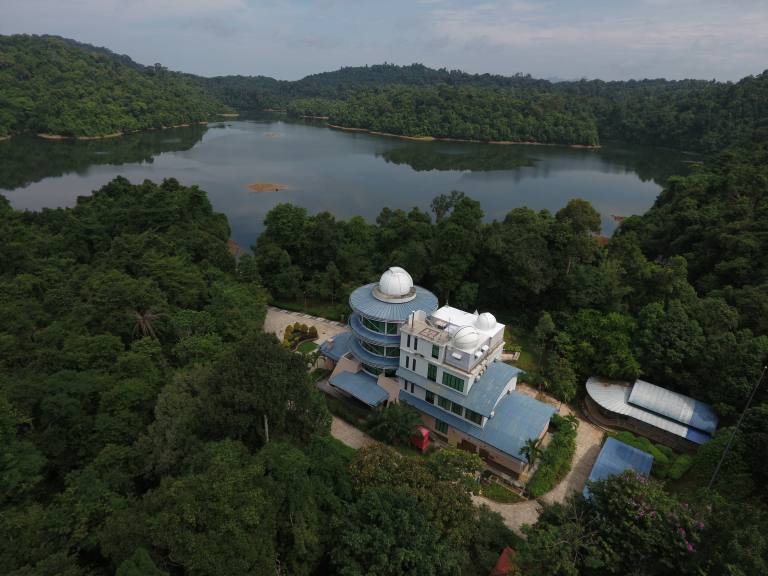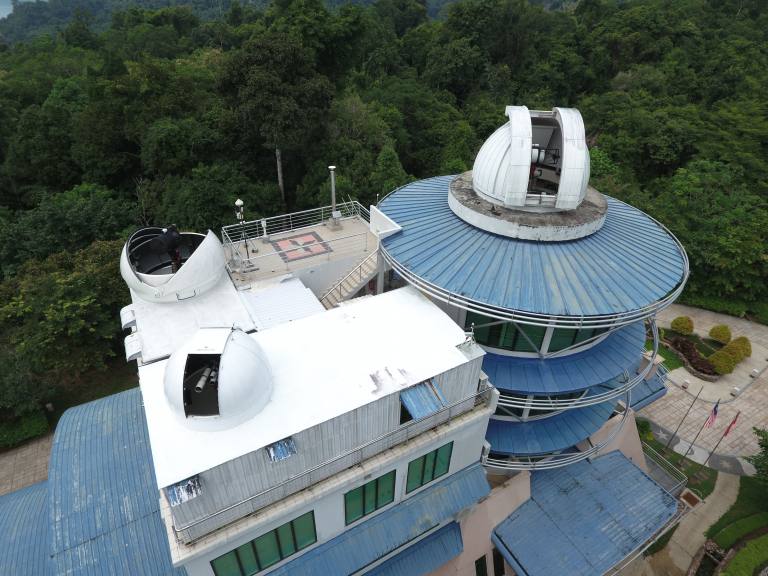The Langkawi National Observatory (LNO), which was completed in 2006 is one of the observatories in Malaysia that provides international standard observation facilities for optical astronomy research in Malaysia. Malaysia as a whole is the best location for astronomical observation due to its location in equator which has almost equal daylight throughout the year and allows it to detect astronomical objects in the northern and southern hemisphere skies.

LNO is equipped with a optical telescope system that is divided into 2 main telescopes:

Stellar I was developed in 2006 for observing astronomical phenomena and objects such as eclipse phenomena, binary stars, planets, galaxies, asteroids and others. In 2015, LNO’s observation facilities was recognized by the Minor Planet Center (MPC) under International Astronomical Union (IAU) by given observatory code O43 as one of the facilities that capable to detect objects closer to the Earth (NEO – Near -Earth Object) such as comets and asteroids. LNO observation facilities were enhanced in 2017 by the development of Stellar II that capable for detecting and tracking NEOs with faster speed.
The Solar Telescope System was built in 2006 that can detect the Sun in three different wavelengths through visible light (white-light), Hydrogen-Alpha (6562.8Å) and Calcium K-line (3933.7Å) filters which aims to monitor solar activities. This monitoring is important to obtain information on the state of the Sun and its surroundings that may affect the space environment, technology and life on Earth. In 2015, LNO’s Solar Telescope System was recognized as one of the observatories contributing Sunspot data to the World Data Center of Sunspot Number through the Sunspot Index and Long-term Solar Observations Network (SILSO) due to its ability to perform daily Sun observations consistently.
FUNCTION
The main role of LNO is used for Research and Development (R&D) and knowledge creation which included the involvement of researchers and students of local/international universities as well as international partners (international researchers), especially through scientific research cooperation programs. Besides that, LNO also offers the placement of scientific instrumentation in LNO for space science research purposes.
LNO also supports educational programs such as the placement of Industrial Training students as well as awareness program for society, especially educators, researchers and students through the reception of visitors.
SERVICES
LNO offers research and development opportunities by providing consultancy, training, and other services related to astronomy and space science as follows:
▶ ️ Stellar astrometry, photometry and spectroscopy;
▶ ️ Stellar, solar and space weather observation data and images;
▶ ️ Instrumentation handling and data observation; and
Please contact MYSA for the above service applications.
For further information, please visit our portal at http://observatory.mysa.gov.my/ or download ONL Brochure.